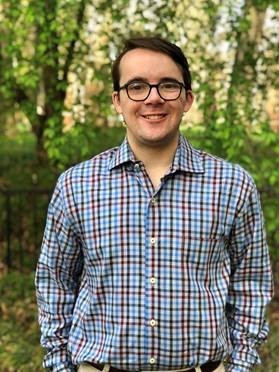Breaking Ground 106 - TennCare Internship Puts Employment Values to Work
TennCare leaders, intern Wilson Brim, and the team he works with show us what it looks like to walk the employment walk. TennCare supports people with disabilities to work – and now it hires them through its internship pilot program.
Breaking Ground: Why did TennCare decide to recruit an intern from an inclusive higher education program?
Kelly Kuhns, Employment Specialist, TennCare Long-Term Services and Supports: TennCare’s internship pilot program for people with disabilities began this past semester, spring 2021. We worked together with Vanderbilt’s Next Steps program and other state agencies to bring this program to life.
TennCare and the State of Tennessee are champions in supporting people with disabilities to lead fulfilling, meaningful lives. We are a driver of the state’s goal to make Tennessee state government a model employer of people with disabilities. In 2016, TennCare’s division of Long-Term Services and Supports (LTSS) launched Employment and Community First (ECF) CHOICES. ECF CHOICES provides greater access to employment and community supports for people with intellectual and developmental disabilities. Offering an internship program is the natural next step.

The Intern Perspective: Q&A with Wilson Brim
Breaking Ground: What made you decide to apply to be an intern at TennCare?
Wilson Brim: The reason I applied at TennCare was that most of the job requirements sparked my interest. And some of them are things I want to improve on. One of them is writing because at Vanderbilt my advisor always says my writing is improving. So, I want to take [it] to the next level.
BG: What have you liked the most so far about working at TennCare?
WB: The task I like the most is creating social media posts because on my personal social media I do want to expand my accounts to be more interactive. Since I first got Instagram, I’d only post 3 to 2 times a year and I am the same way today, but I want to flip it to 3-2 times a month. What I do know it helps my creativity on another level to do more posts for jobs and my own as well.
BG: What have you learned about yourself through this internship?
WB: I have learned how to interact with others online more professionally in a home work environment. Because it is something I had not done before. I have learned to start checking my emails more often.
BG: Do you like working from home? Do you have any advice for other young adults with disabilities learning to work from home?
WB: I am not a fan working from home because there so many distractions and it makes it even harder to focus sometimes. To avoid distractions, I would listen to music during my work, so my mind is focused on one thing. I make sure it is calm or chill music like Mozart or classical.
BG: What kind of job do you want to get in the future, after you graduate?
WB: The kind of job I want is to be a film critic because my writing is improving like I said in the first question. The other reason is I love watching movies because I know what the film is and that it makes me feel happy.
The Team Perspective: Q&A with TennCare’s Long-Term Services and Supports (LTSS) Communications Team
- Don Smith, LTSS Executive Supports Director
- Tommy Wood, LTSS Director of Communications
- Lynsey Auell, LTSS Assistant Director of Training and Communicaion
Breaking Ground: How does TennCare staff support Wilson in this internship?
TennCare: Wilson is given a monthly calendar that includes his assigned tasks. It shows due dates and who the point of contact will be for the day. Task guidance sheets give more detail to help him complete his tasks. An IPP (individual performance plan) give him clear objectives to achieve throughout his internship.
We follow up with scheduled weekly touchpoints with Wilson every Monday morning. We use that time to answer questions, address concerns, and give Wilson a chance to offer any feedback he may have.
BG: What are some of Wilson’s strengths and skills?
TC: Wilson is thoughtful, diligent in his work, and attentive to detail. Wilson is always willing to take on a new project without hesitation.
BG: How do Wilson’s job duties help your team?
TC: Wilson’s strength in written communication has been a great asset in the development of both internal and external newsletters.
BG: What have you all learned from this experience with Wilson on your team?
Wilson has been a team player and participated in many communication projects.
LTSS learned how to effectively engage an intern to ensure that the individual has a beneficial and meaningful experience. We also learned how to leverage the strengths of the individual to benefit the team.
BG: What should another employer or state agency know about hosting interns with intellectual and developmental disabilities?
TC: It is important to identify effective supports and establish a solid structure prior to the onboarding of the intern. Throughout the internship, it is essential to maintain the established supports, such as a schedule to effectively communicate expectations. Overall, hosting an intern is a mutually valuable experience for the intern as well as the state agency. We highly recommend that state agencies consider hosting an intern in the future.